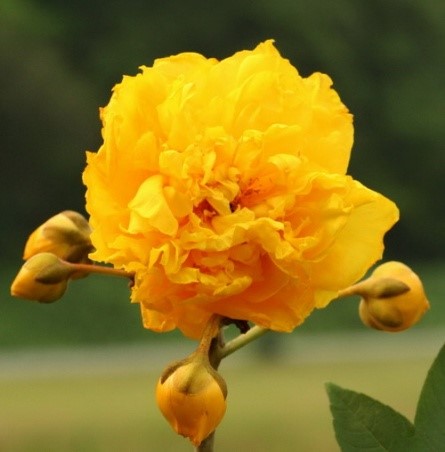

Research team, leading by Prof. ZENG Songjun, from South China Botanical Garden of Chinese Academy of Sciences recently made a breakthrough in establishing the genetic transformation method for Paphiopedilum. CeFT (Cymbidium ensifolium Flowering Locus T) gene has been successfully transformed into Paphiopedilum Maudiae by ovary injection.
Paphiopedilum has high horticultural value and becomes quite popular in the international market due to its unique flower shape, gorgeous color and long-lasting flowering period. The wild populations are under threat of extinction because of over collection and habitat destruction. Paphiopedilum is now one of the most endangered plant species in the world. Right now the commercially popular species in China are either introduced directly from Taiwan or collected from the wild habitat illegally due to the fact that the breeding efforts started late in mainland China and an effective propagation system is very difficult to establish.
Pollen tube pathway method was first proposed and designed by Chinese scientist ZHOU Guangyu in 1979. This method uses the pollen tube pathway to deliver transgene into embryo sacs and then insert foreign genes into the designated genome. Since the transformed cells do not form cell walls, and are actively copying, separating and recombing DNA at this stage, it is easy to integrate the foreign DNA into the donor genome for the purpose of the genetic transformation method.
The typical time from pollination to fertilization is 40 to 50 days in Paphiopedilum. Therefore, degradation may occur if the foreign DNA is carried directly by pollen. Prof. ZENG Songjun’s team use ovary injection to avoid DNA degradation. The embryo development process was characterized first. The fertilization occurs 40 to 50 days after pollination, and the injection performed during this period will achieve the optimum conversion rate of up to 2.54%.
Prof. ZENG Songjun’s team has been working on the resources collection and evaluation, hybrid breeding, propagation and commercial production of Paphiopedilum. Significant achievements have been made, and these efforts had been awarded the second prize of National Scientific and Technological Progress, the first prize of Science and Technology Award in Guangdong province, and China Patent Excellence Award. The establishment of the genetic transformation method has been granted a national invention patent in 2019.
This study, entitled “Ovule development and in planta transformation of Paphiopedilum Maudiae by Agrobacterium-mediated ovary-injection”, has been published in the International Journal of Molecular Science.
For further reading, please refer to: https://doi.org/10.3390/ijms22010084.

